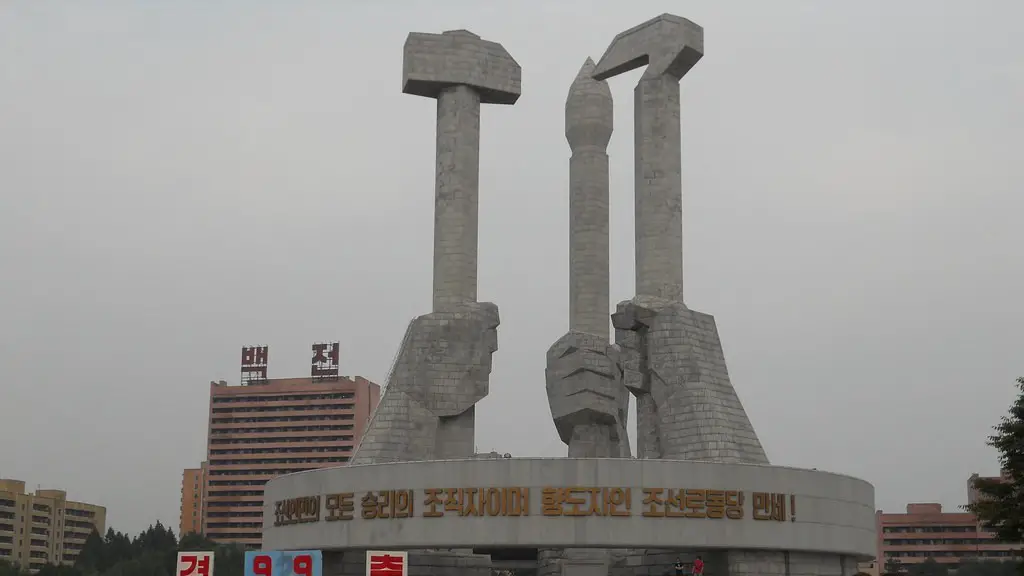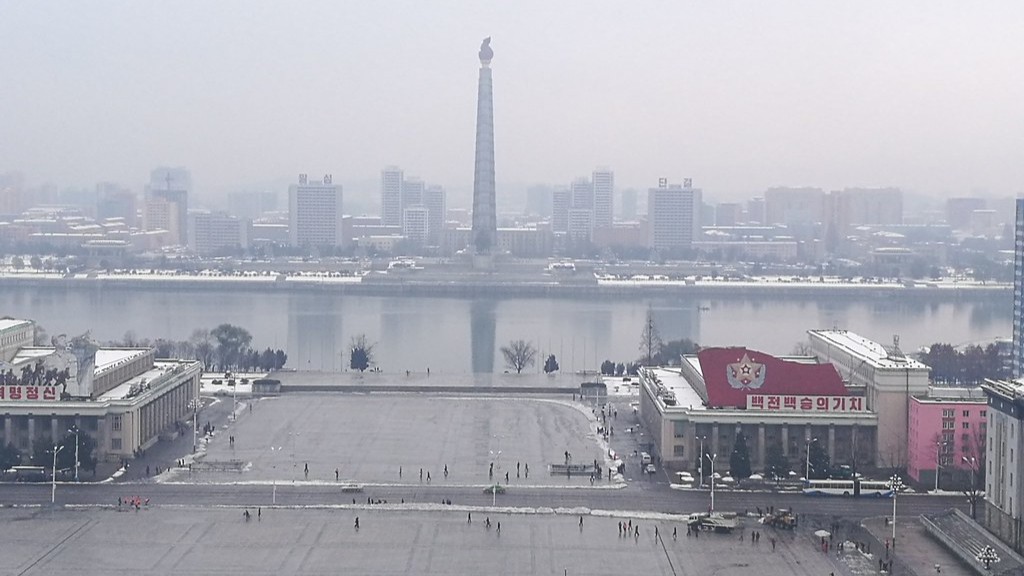Factors Affecting the Succession
North Korea is a fascinating yet mysterious country. It’s one of the few remaining authoritarian states, with an enigmatic leadership and a puzzling dynastic dynasty at its helm. For decades, the Kim family has held power over a country with a reputation for secrecy, but who will take the reins after Kim Jong-un? That’s the question that has kept analysts, journalists, and even historians guessing over the years.
Kim Jong-un has been keeping a tight lid on the details of the power transfer and is not even allowing most of the documents regarding the succession to be publicly available. It’s clear that the transition of leadership in North Korea is not simple and straightforward, but there are a few factors that can shed some light on the process.
The most important factor to consider is Kim Jong-un’s age and health. The young leader is believed to be in his early thirties, but some suspect his actual age could be even younger than that. Despite years of speculation about the health of Kim Jong-un, no clear information has been released on his fitness levels. If his health deteriorates it is likely that the leadership power will be entrusted to a younger family member.
The most discussed successor is Kim Yo-jong, Kim Jong-un’s sister. She has been a high-ranking official in the North Korean government for some time, and has grown to be one of her brother’s closest confidantes. In 2017, she was promoted to the powerful position of first vice-director of the Korean Workers’ Party, enhancing her chances of assuming more power in the future.
The succession might not necessarily involve members of the Kim family, however. According to some experts, the main factor taken into consideration when selecting a new leader will be loyalty to the existing system. This could mean that someone outside of the Kim family could become the new leader, as long as they have the necessary support from North Korea’s factions and the backing of the military.
The military is an important factor in the selection of the next leader. The North Korean army has a powerful influence on the country’s internal affairs and it’s no secret that Kim Jong-un has had a strong connection with the military throughout his tenure as leader. The loyalty of the officers in the military could be the determining factor in who takes power after Kim Jong-un.
Domestic Policies
The new leader of North Korea could change the country’s domestic policies, which could have an impact on foreign relations. Many predictions suggest that the period of reform and openness Kim Jong-un has instituted could be reversed, with the new leader more likely to favor a more despotic approach. This may mean that sanctions on North Korea could be tightened, further isolating the country from the rest of the world.
Economic reforms have been praised since the start of Kim Jong-un’s rule, but the current leader has yet to push through true structural reform of the North Korean economy. It’s likely that the next leader will decide to either stick to the existing policies or make adjustments that align with their own beliefs.
Since North Korea is so isolated from the rest of the world, the new leader will be tasked with connecting the country to international players. This could include China, South Korea, and other powers that may be interested in gaining influence in the region. The foreign policy of North Korea could be significantly impacted by who takes the reins of power and how they choose to engage in foreign diplomacy.
Global Impact
The successor will also have to manage the historically tense relationship between North Korea and the United States. The two countries have been locked in a decades-long conflict, with nuclear proliferation and military provocations on both sides. The new leader of North Korea will be expected to come up with a solution to the impasse, and could shift the dynamic of the negotiations in the process.
The transfer of power also has an impact on the security of the region, as North Korea is one of the few remaining players in East Asian politics. The country’s nuclear ambitions have caused much concern in the region and the world, and the new leader’s policies and attitudes could have an impact on the continuing talks surrounding the North Korean nuclear weapons program.
It is likely that the succession in North Korea will significantly affect the geopolitics of the Korean peninsula. Since there are so many factors to take into account, and the stakes are so high, onlookers are anxious to see who will fill Kim Jong-un’s shoes as the next leader of North Korea.
International Policies
The next leader of North Korea will also have to focus on the internationalization of the country’s policies in order to make the most of the opportunities available. This could include increasing trade opportunities, reaching agreements regarding nuclear weapons, and engaging in meaningful diplomatic contacts with other countries. It is likely that the new leader will attempt to gain more influence abroad by deepening contacts with other powers and the international community.
International organizations such as the United Nations could be utilized to help foster better relations with other countries. North Korea could even potentially join other organizations to increase communication among members. The new leader will be tasked with finding ways to open up the country to the rest of the world.
Societal Changes
The successor of North Korea could also bring about changes in the country’s society. Since Kim Jong-un has come to power, some progress has been made with regards to American-style consumerism in North Korea. This could be encouraged further by the new leader, leading to a gradual growth in the consumption of imported products and modern technological advancements.
The new leader of North Korea may also use a softer approach to public discussion, allowing more sharing of ideas and a loosening of the country’s censorship laws. International media outlets could start to be available as well, allowing citizens of the country to be more informed about the latest events and more connected to the outside world.
North Korea has managed to stay relatively isolated from the outside world for so long, but the new leader will have to find a way to make the country more accessible. This could mean that the new leader will have to come up with ways to attract foreign investment, as well as open up some of the country’s industries to foreign competition.
Public Opinion
Public opinion is an essential part of the succession process, as the new leader will want to make sure they have the support of the country’s citizens. Kim Jong-un has been in power for almost a decade, but the new leader will have to start building a positive rapport with the public in order to gain their trust.
Any public overtures by the new leader will need to show a genuine reflection of the public’s wishes. This could mean that the new leader will be open to discussing the concerns of the people and addressing the issues that need to be resolved. Public rallies and events could help the new leader to gain popularity and secure the support of more citizens.
Whether it’s someone from the Kim family or an individual from outside of the family, when the time comes, North Koreans will have to make a difficult decision about who will rule the country. With so many factors affecting the outcome and such high stakes, North Korea will be watching anxiously to see who will take the reins of power and become the next leader of the country.
Reform Expectations
No matter who the successor to Kim Jong-un will be, they will be expected to bring some positive change to the country. Though economic reforms have been put in place in recent years, the changes have been minimal in comparison to what is needed. Without any large scale reform, the stagnation of North Korea’s economy will continue.
The new leader will also have to reign in rising public discontent, as the population’s dissatisfaction with the government is on the rise. Food shortages and inflation are increasing, largely due to the mismanagement of the state. The new leader must address these issues and create conditions for more economic openness and growth in order to satisfy the people.
The environment of North Korea has seen significant degradation due to the country’s struggles with industrial projects, deforestation, and pollution. Under the new leader, environmental initiatives aimed at improving the quality of the environment must be created and implemented.
Overseas Influence
The success of the new leader of North Korea will depend on whether or not they can secure international support. North Korea does have relationships with other countries, most notably China, and the new leader may look to strengthen these connections. Improving North Korea’s ties to other nations could see improvements in economic growth, as well as help to secure a more stable position on the world stage.
It is likely that the new leader of the country will attempt to expand the country’s presence overseas. This could include opening up embassies in other countries and engaging in various forms of international cooperation. North Korea could benefit greatly from these connections, as they could help to secure better access to international markets, as well as help to develop contacts that could aid in negotiations.
The new leader will also have to decide how to interact with the United States, who has long seen North Korea as an enemy state. It is likely that if North Korea makes a concerted effort to engage diplomatically with the US, US relations with North Korea will improve, potentially resulting in better trades and more secure borders.
Conclusion
The identity of the next leader of North Korea is still unknown, but it is clear that when the time comes, this person will have to face unprecedented challenges and make difficult decisions in order to secure the future of the country. Whoever is chosen to take the reins must be strongly committed to the cause of reforming the existing system and improving the lives of the North Korean people. Only then can the country be brought out of its long period of isolation and gain more influence on the world stage.


